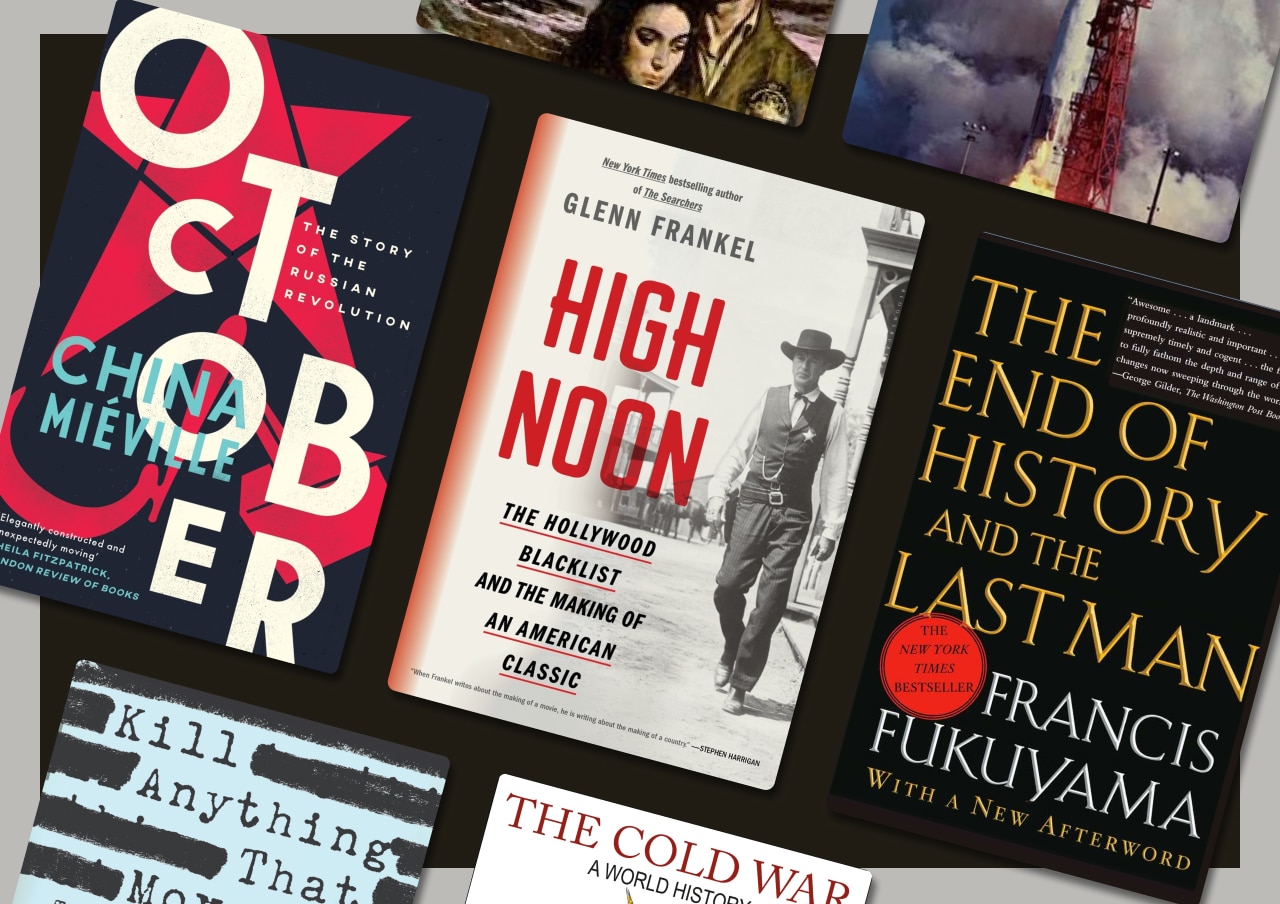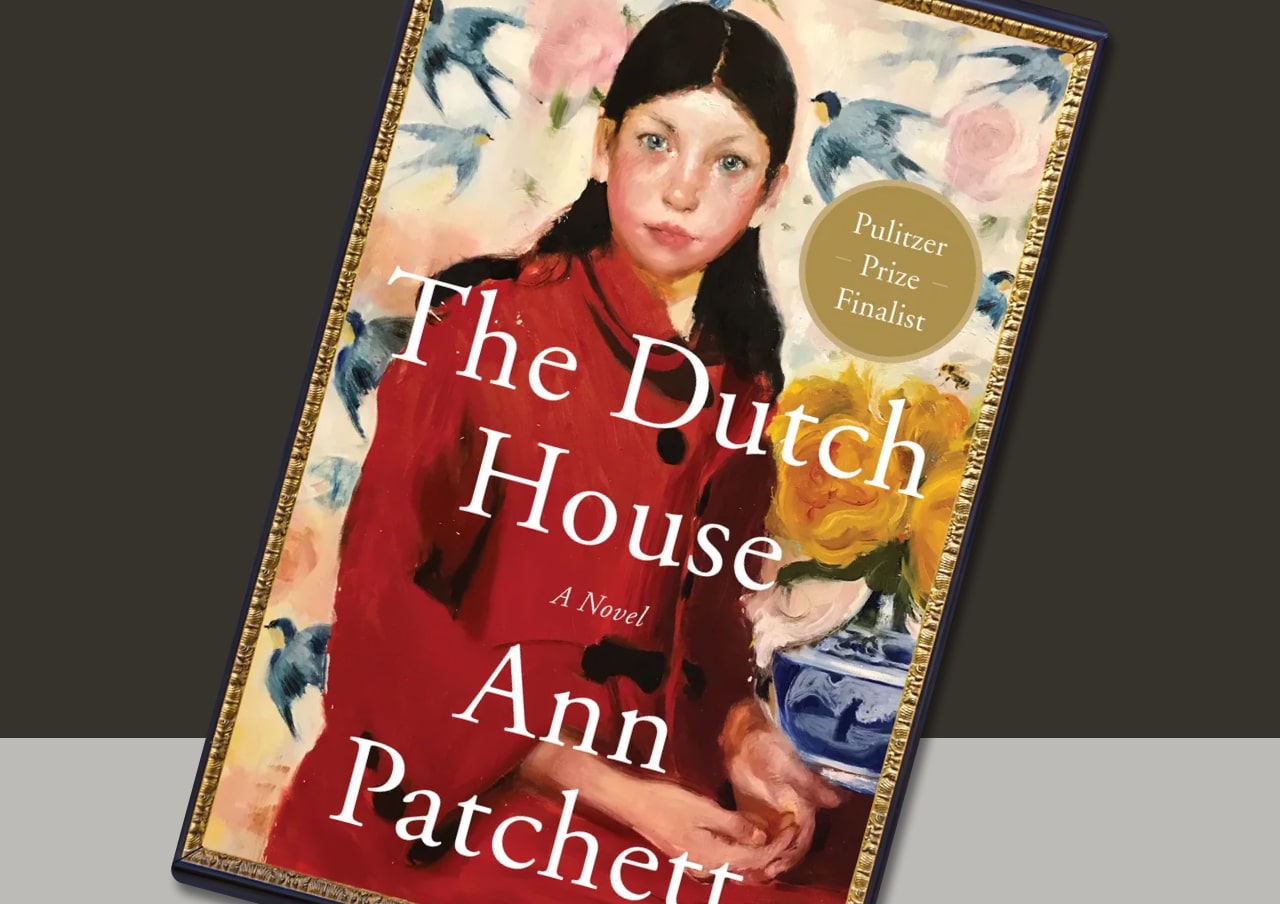
In popular media and discourse, there’s an inclination to cast the Cold War in simplistic terms: capitalism vs. communism; the Global North vs. the Global South; the USSR vs. USA. In reality, these dichotomies mask an unfathomable complexity — an international, ideologically loaded, 45-year conflict with countless belligerents and characters, the repercussions of which we’re still wrangling with. (Arguably, we’re even in a new Cold War.)
A thorough understanding of the Cold War, as with most geopolitical conflicts, demands a whole lot of reading: of various perspectives, especially those underrepresented in Western narratives; of many subjects, including military history, pop culture, and political science; and of various time periods, from its early 20th century roots to late century, post-Cold War analyses. So you’re probably wondering, where do you even begin unpacking this much information?
These books represent some of the best material about the Cold War and its various constituent parts. Some titles are explicitly “Cold War books” (The Cold War: A World History), while others are about conflicts and events that marked turning points and milestones in the war (Kill Anything That Moves). Still others are products of their time that exemplify the culture and atmosphere of Cold War America, or historiographic attempts at assessing the legacy of the great standoff.
I have attempted to represent as many perspectives, ideologies, and genres as possible, but ultimately, this list represents the mere tip of the iceberg. Nevertheless, each and every one title listed here is worth any aspiring history buff’s time.
1. October: The Story of the Russian Revolution by China Miéville
Historians often place the start of the Cold War in 1947, the year the Truman Doctrine was announced;but there couldn’t be a Cold War without the October Revolution of 1917, when the Bolsheviks took power in Russia and formed the USSR.
In October, speculative fiction titan Miéville exhaustively and accessibly breaks down the complex politics of this crucial moment in history while employing his trademark engrossing character development and storytelling.
2. High Noon by Glenn Frankel
It’s impossible to speak about the Cold War without addressing McCarthyism and the Hollywood Blacklist, and few films exemplify the political turmoil of Old Hollywood like High Noon.
In Frankel’s magisterial book about the making of High Noon, the betrayals and intrigue of the McCarthy era are brought to life in stunning, gripping detail. Frankel’s work offers a fly-on-the-wall level exploration of an exemplar of Cold War cultural politics.
3. On the Beach by Neil Shute
On the Beach is not a nonfiction work, nor is it a work of historical fiction. Rather, it’s a work of apocalyptic science fiction published in 1957, at the height of the Cold War.
Set in the aftermath of an accidental nuclear war, the novel follows survivors of the blasts in Australia as they await the fallout — and their certain deaths. It’s bleak and unsettling, but The Washington Post deemed it the “most important novel of the Atomic Age” for a reason. It truly captures the existential anxieties of the Cold War era, and what was at stake for our planet and its denizens.
4. Che Guevara: A Revolutionary Life by Jon Lee Anderson
The Cold War didn’t just involve the Americans and the Soviets; indeed, the allies to each superpower played just as crucial a role in history as their vassals. Among these allies was Cuba, a Global South ally to the USSR that underwent its own revolution in 1953, thanks in no small part to Che Guevara, a polarizing revolutionary figure.
Anderson’s mammoth but compulsively readable biography includes previously unavailable documentary references and is considered the definitive English-language work on Guevara.
5. Kill Anything That Moves by Nick Turse
The Cold War got its name from the fact that the Soviets and Americans never participated in direct combat with one another, but the reality of the Vietnam War, a key proxy fight in the USSR/USA conflict, calls this notion of “coldness” into question.
In Kill Anything That Moves, award-winning journalist and historian Turse describes the horrors of the Vietnam War in visceral detail with extensive documentary evidence, exposing the true human cost of a conflict often thought of as relatively peaceful.
Admittedly, Kill Anything That Moves is brutal and doesn’t make for pleasant reading. But it revolutionized the historical consensus on the war and as such, should be considered an essential text about American military action in Vietnam.
6. In Search of Enemies by John Stockwell
Stories about espionage are quintessentially Cold War, and you’ll be hard-pressed to find a spy story more thrilling — or more disconcerting — than In Search of Enemies.
Written by former CIA officer Stockwell, In Search of Enemies outlines U.S. intelligence’s operations in the Angolan Civil War, and reveals the lengths the American government went to in order to impose their political agenda internationally. The CIA attempted to sue Stockwell for writing this, so you know it must be good.
7. The Right Stuff by Tom Wolfe
In this richly detailed worm’s-eye view of the American side of the Space Race, 20th century American journalist par excellence Wolfe directs his attention to the personal lives of the people who made it possible for our species to reach the final frontier.
Wolfe was well-regarded for his ability to understand the inner lives of his subjects, and The Right Stuff stands as one of his finest works, having been adapted into an Oscar-winning film in 1983 as well as a miniseries.
8. Reaganland by Rick Perlstein
Reaganland — the final entry in a four-part series about modern American conservatism from the historial Perlstein — explains the end stages of the Cold War and sets up an understanding of American history in the decades that would follow.
Although the Cold War was technically winding down by Reagan’s first presidential term, the 1980s nevertheless proved a crucial time for politics both domestically and abroad; few books have explained the roots of American political culture at the time better than this one.
9. The Cold War by Odd Arne Westad
The notion of the Cold War as a bilateral conflict between the United States and the Soviet Union is a sticky one that’s hard to shake. In The Cold War, historian and Yale instructor Westad makes the case for a global conception of the conflict, with shockwaves primarily being felt in Asia, Africa, and the Middle East rather than Europe and North America.
The Cold War can’t be described as light reading, but will likely remain a major text in Cold War historiography for years to come.
10. A Failed Empire by Vladislav M. Zubok
If you think of the United States as the “winners” of the Cold War, it stands to reason that America’s narrative would be the prevailing one. But an understanding from the Soviet side is crucial for complete comprehension of the conflict.
A Failed Empire, penned by Soviet-born-and-raised historian Zubok, has proven the most enduring assessment of the Cold War from the Soviet perspective. By clearing up misconceptions and presenting an approach that may surprise some readers, A Failed Empire is an enlightening text for anyone seeking a more international point of view on the Cold War.
11. The End of History and the Last Man by Francis Fukuyama
Political scientist Fukuyama argues in The End of History and the Last Man that the close of the Cold War marked the triumph of liberal democracy and the end of our political evolution as a species.
Fukuyama’s hypothesis is, of course, controversial — some would even say self-evidently debunked — but as a political text, The End of History has been hugely influential among the American governing class. Whether you agree or disagree with its premise, The End of History is a big idea worth wrangling with yourself.

About the Author: Robert Higgs
Robert Higgs is a Bay Area-based senior associate editor of original content for Everand, where he works on developing audio productions in history and other nonfiction genres. His other interests include anachronistic physical media, obscure movies, experimental music, and professional wrestling.
















